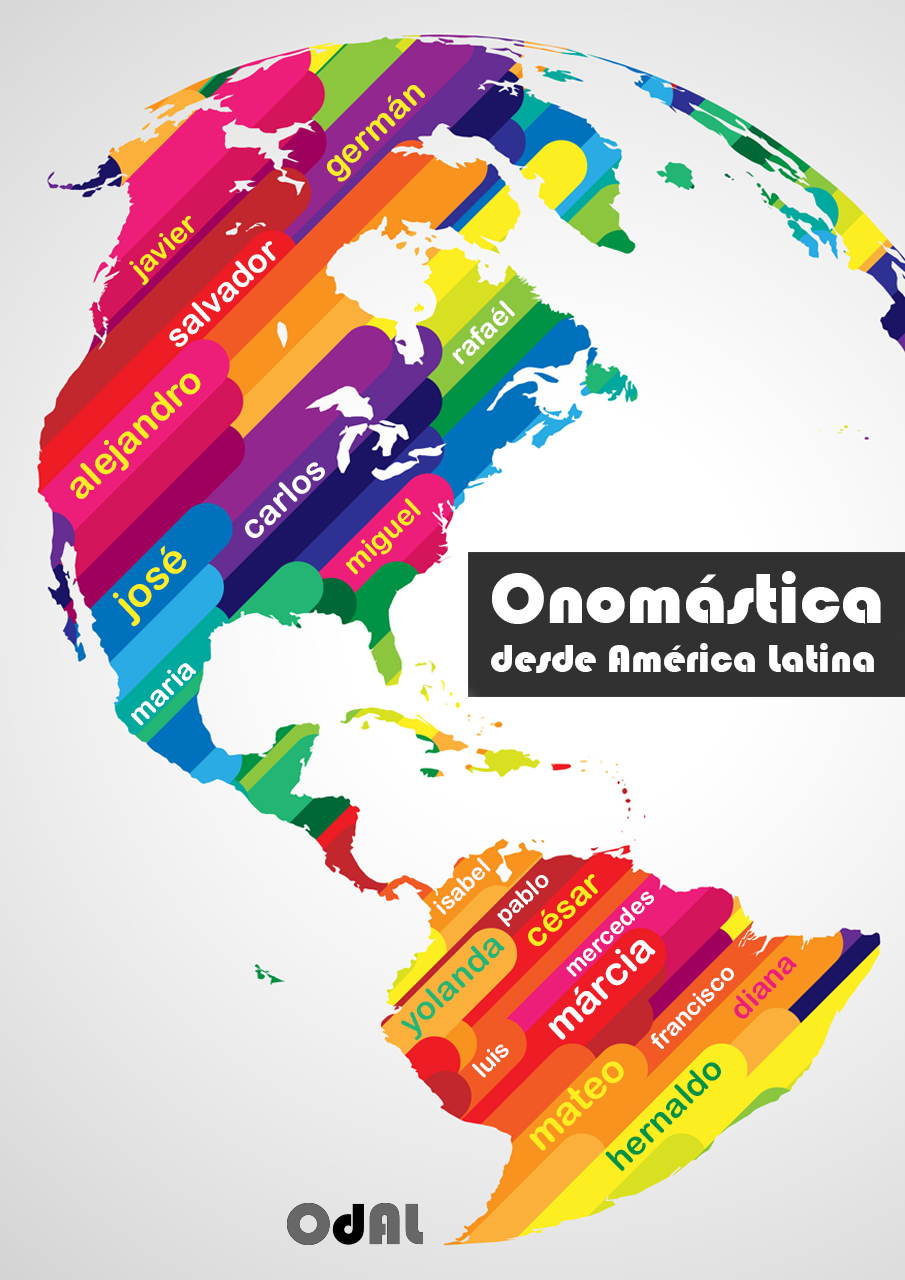O Evangelho Segundo Jesus Cristo, by Saramago: an anthroponomical reading
DOI:
https://doi.org/10.48075/odal.v5i1.33728Keywords:
Fictional Anthroponomastics, O Evangelho Segundo Jesus Cristo, namesAbstract
The subject of this paper is a symbolic and etymological analysis of the characters’ names from O Evangelho Segundo Jesus Cristo by José Saramago. This study aims to verify how the names are related to their functions in the literary work and to their physical or behavioral features. Additionally, it aims to determine whether the choice of their names was intentional and corresponds to their etymological origin or if it was merely fortuitous. The study is justified due to the book's and its author's relevance to the Portuguese language, besides, it is noted that, as far as has been determined, no publication has approached this matter. The theoretical foundation is based on Onomastics studies and, more specifically, on Fictional Anthroponomastics, which focuses on the study of proper names of fictional characters. Regarding the methodological procedures, the following procedure was considered: careful reading of the work and recording all occurrences related to proper names; consulting dictionaries of first and last names; verification of the correspondence between the meaning of the name as presented on the dictionaries and the functions and characteristics within the literary work. It is concluded that the choice of names in the case of the analyzed book was not fortuitous but rather etymological and symbolically motivated.
References
Amaral, E. T. R.; Seide, M. S. (2020). Nomes próprios de pessoa: introdução à antroponímia brasileira. São Paulo: Blucher.
Andrade, J. de. (1994). O étimo dos nomes próprios. São Paulo: Thirê.
Butkuviené, K. et al. (2021). Name-giving motives in Lithuania and Brazil. Domínios de Lingu@gem, (15) 2.
Calvet, L. (2011). Tradição oral & tradição escrita. São Paulo: Parábola Editorial.
Camargo, A. K. de. (2020). Onomástica Ficcional: status quo no Brasil. Revista GTLex, 3 (1).
Camargo, A. K de; Bini, R. P. (2022). O ethos pela homonímia: o grupo de Barranquilla e a personagem-autor em Cem anos de solidão e Viver para contá-la. Revista De Literatura, História E Memória, (31) 18.
Carvalhinhos, P. de J. (2007). As origens dos nomes de pessoas. Domínios de Lingu@gem, (1), 1.
Correia, M.; Almeida, G. M. de B. (2012). Neologia em português. São Paulo: Parábola Editorial.
Dauzat, A. (1950). Les noms de personnes: origen et évolution Prénoms – Noms de famille – Surnoms (4a ed.). Paris: Delagrave.
Dubois, J. et al. (2006). Dicionário de Linguística. São Paulo: Cultrix.
Frosi, V. M. (2015). Provérbios italianos: pérolas na educação informal dos ítalo-brasileiros. Caxias do Sul: Educs.
Gasques, A. E. G. (2003). Um estudo simbólico: o paraíso em o primo Basílio e o cemitério em "Venha Ver o Pôr-do-Sol" [Dissertação de Mestrado]. Universidade de São Paulo.
Guérios, R. F. M. (1973). Dicionário Etimológico de Nomes e Sobrenomes. (2a ed.) São Paulo: Ave Maria.
Marcato, C. (2009). Nomi di persona, nomi di luogo: introduzione all’onomastica italiana. Bologna: il Mulino.
Mexias-Simon, M. L.; Oliveira, A. de M. (2004). O nome do homem: reflexões em torno dos nomes próprios. Rio de Janeiro: HP.
Mioranza, C. (2009). Filius Quondam: a origem e o significado dos sobrenomes italianos. São Paulo: Larousse.
Obata, R. (1986). O livro dos nomes. São Paulo: Círculo do Livro.
Oliver, N. (2005). Todos os nomes do mundo. Rio de Janeiro: Ediouro.
Santos, B. da S. (2015) Dom Casmurro à luz da onomástica: tramas e tramoias do romance machadiano. [Dissertação de Mestrado] Universidade Federal do Espírito Santo.
Saramago, J. (1991). O Evangelho Segundo Jesus Cristo. Rio de Janeiro: Record.
Sartori, T. O. (2015). Signo linguístico versus signo onomástico: convencionalidade e motivação para falar e nomear. Ciência em Curso, (4) 2.
Schmidt, J. M. da G. (2003). Manual de pintura e caligrafia, História do cerco de Lisboa e O evangelho segundo Jesus Cristo – uma leitura trilológica. Romansk Forum, (17) 1.
Seabra, M. C. T. C. de. (2006). Referência e Onomástica. In: Múltiplas Perspectivas em Linguística. Magalhães, J. S. de; Travaglia, L. C. (org.). Uberlândia: Edufu.
Seide, M. S. (2016). Métodos de Pesquisa em Antroponomástica. Domínios de Lingu@gem, (10) 3.
Downloads
Published
How to Cite
Issue
Section
License
Copyright (c) 2024 Kleber Eckert, Maiquel Röhrig

This work is licensed under a Creative Commons Attribution-NonCommercial-ShareAlike 4.0 International License.
Creative Commons Copyright Notice
Open Access Journals Policy
Authors who publish in this journal agree to the following terms:
1. Authors retain the copyright and grant the journal the right of first publication, with the work simultaneously licensed under the Creative Commons Attribution License that allows the sharing of the work with recognition of authorship and initial publication in this journal.
2. Mandatory authorities to assume commitments, for non-exclusive distribution of the version of the work published in this journal (eg, publish in an institutional repository or as a book chapter), with recognition of authorship and initial publication in this journal.
3. Authors are allowed and encouraged to publish and distribute their work online (eg in institutional repositories or on the personal page) at any point before or during the editorial process, as this can generate productive changes as well as increase impact and citation of the published work (See The Effect of Open Access).
Creative Commons License
This work is licensed under a Creative Commons Attribution-NonCommercial-ShareAlike 4.0 International License, which allows sharing, copying, distributing, displaying, reproducing, a whole or parts as long as it has no commercial purpose and is cited by authors and a source.

